'I'm selling my torture chair so I can move house'
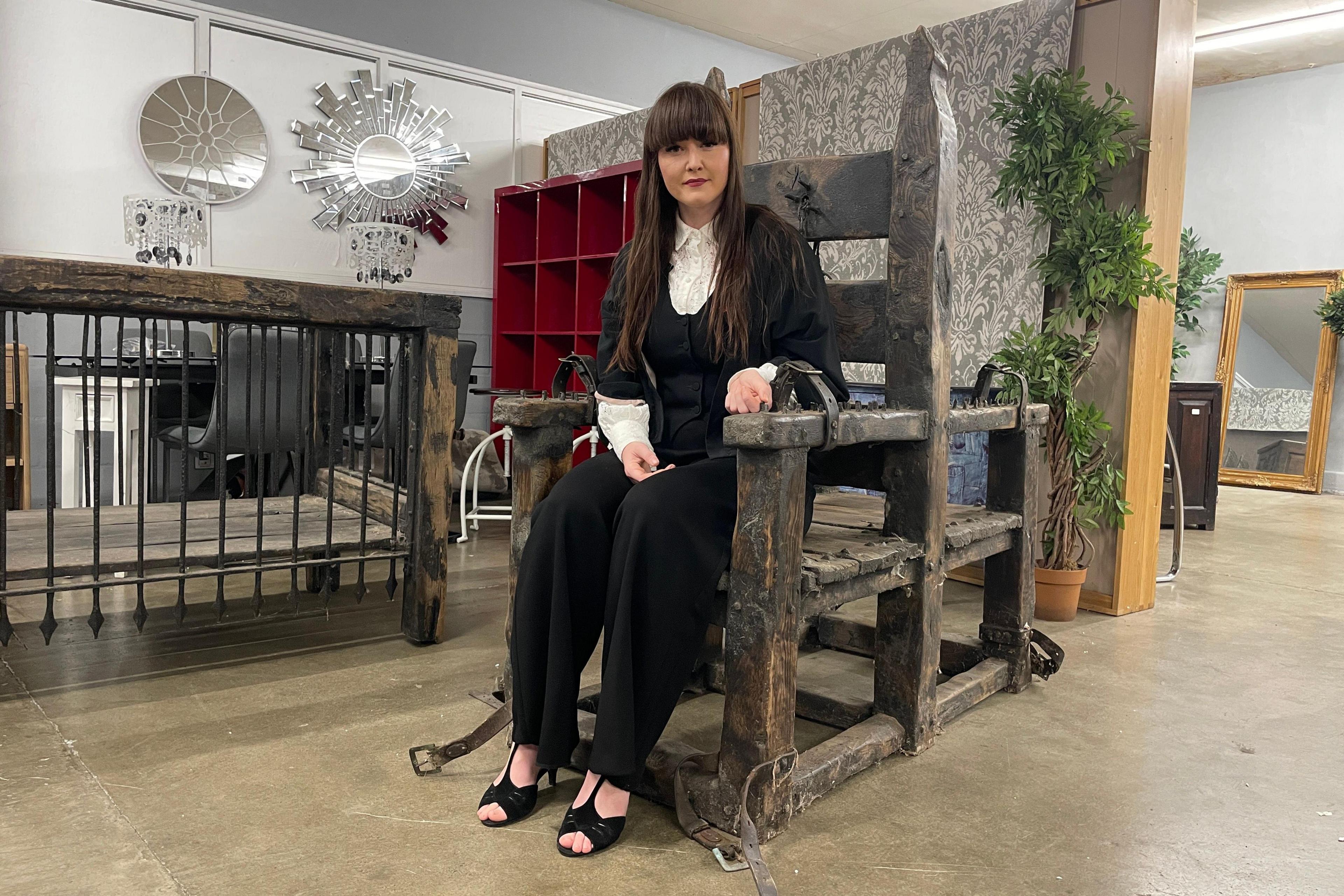
Sian Cullen said she had been storing the chair and cage in her garage since she bought them
- Published
When Sian Cullen saw an interrogation chair for sale on social media, she knew she "just had to have it".
"I went to university in Nottingham to study history, and I've always been really interested in the more gruesome and grotesque elements of history," she said.
But now she's selling the chair - and matching cage - as she declutters in readiness for moving to Scotland.
They're being auctioned at Arthur Johnson & Sons in Nottingham, with an estimate of between £2,500 and £3,500.
"It was kind of a bit of an impulse buy and I didn't really think it through," said Ms Cullen, who does not remember what she paid but recalls that it "wasn't a lot".
"If I had a much bigger space, I would probably keep it and have it as a talking piece.
"My friends have come and had a look at it and been in the cage and just been fascinated."
Ms Cullen explains her "impulse buy" torture chair
Interrogation chairs - also known as torture chairs or iron chairs - are devices that were used to torture people, often in order to extract confessions.
Ms Cullen said hers was "well used" before she bought it, which was evident from the wear on the seats.
However, Ms Cullen said she had not used the chair herself and had been storing it in her garage since she bought it two and a half years ago.
"Unfortunately my bungalow is quite boring and white and modern, but had it been a bit more period and interesting - it would have been quite nice in the living room," she said.
She added: "I am hoping to move to Scotland in 2026 because Scotland, and Edinburgh, have a wealth of history and beauty."
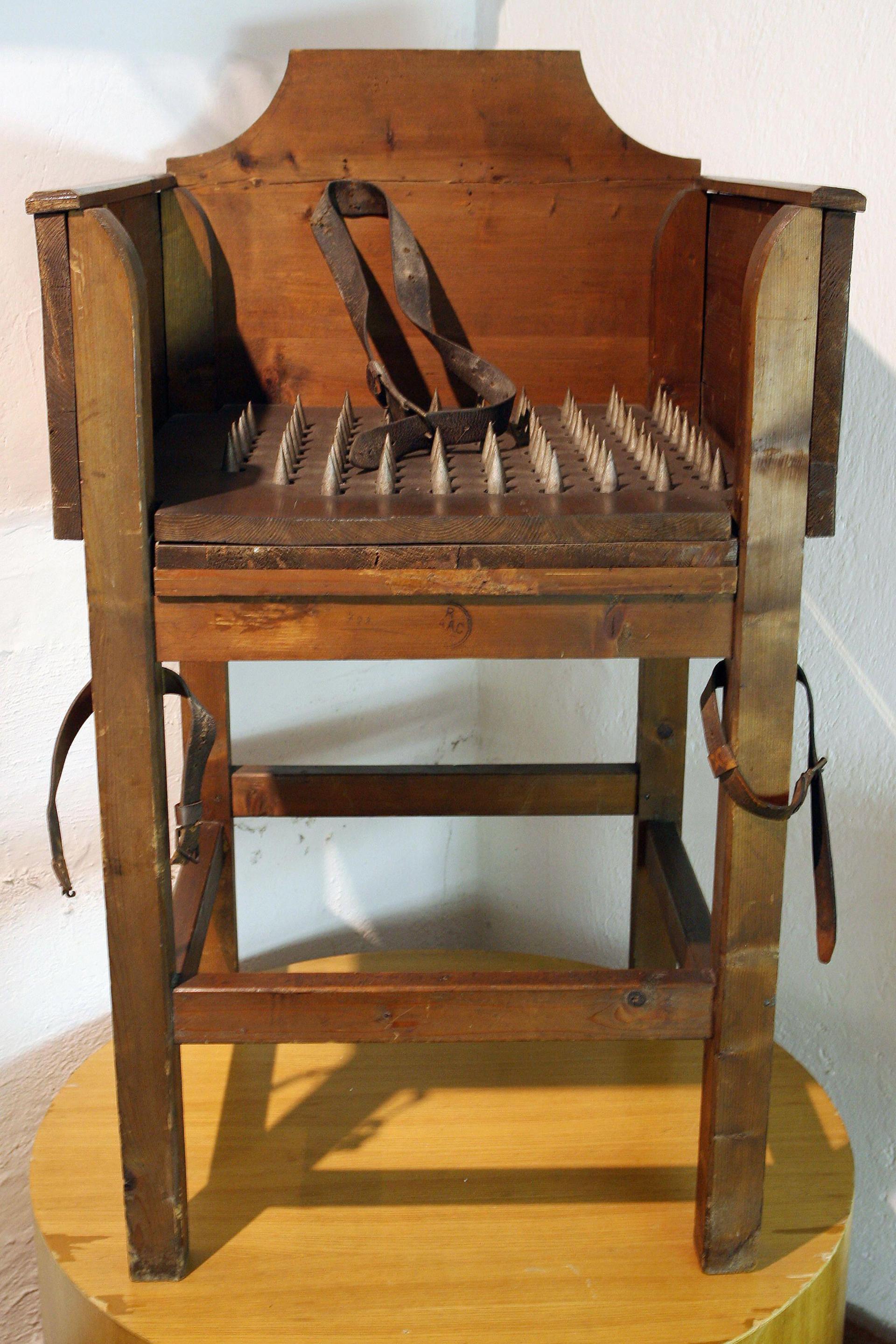
Torture chairs normally have spikes on the seats, such as this example which was used in Nuremberg and Regensburg until 1809
Richard Griza, auctioneer and valuer at Arthur Johnson, said it was a "very unusual" example of an interrogation chair.
"This one is a twin, and normally the other examples you see are a single chair," he said.
"It's very unusual actually because sometimes the seats are studded with metal nails as well and the back is studded with metal nails, whereas this is just [studded on] the arm rests and behind the head."
He said interrogation chairs had been used since the medieval period, but he had not yet been able to accurately date this one.
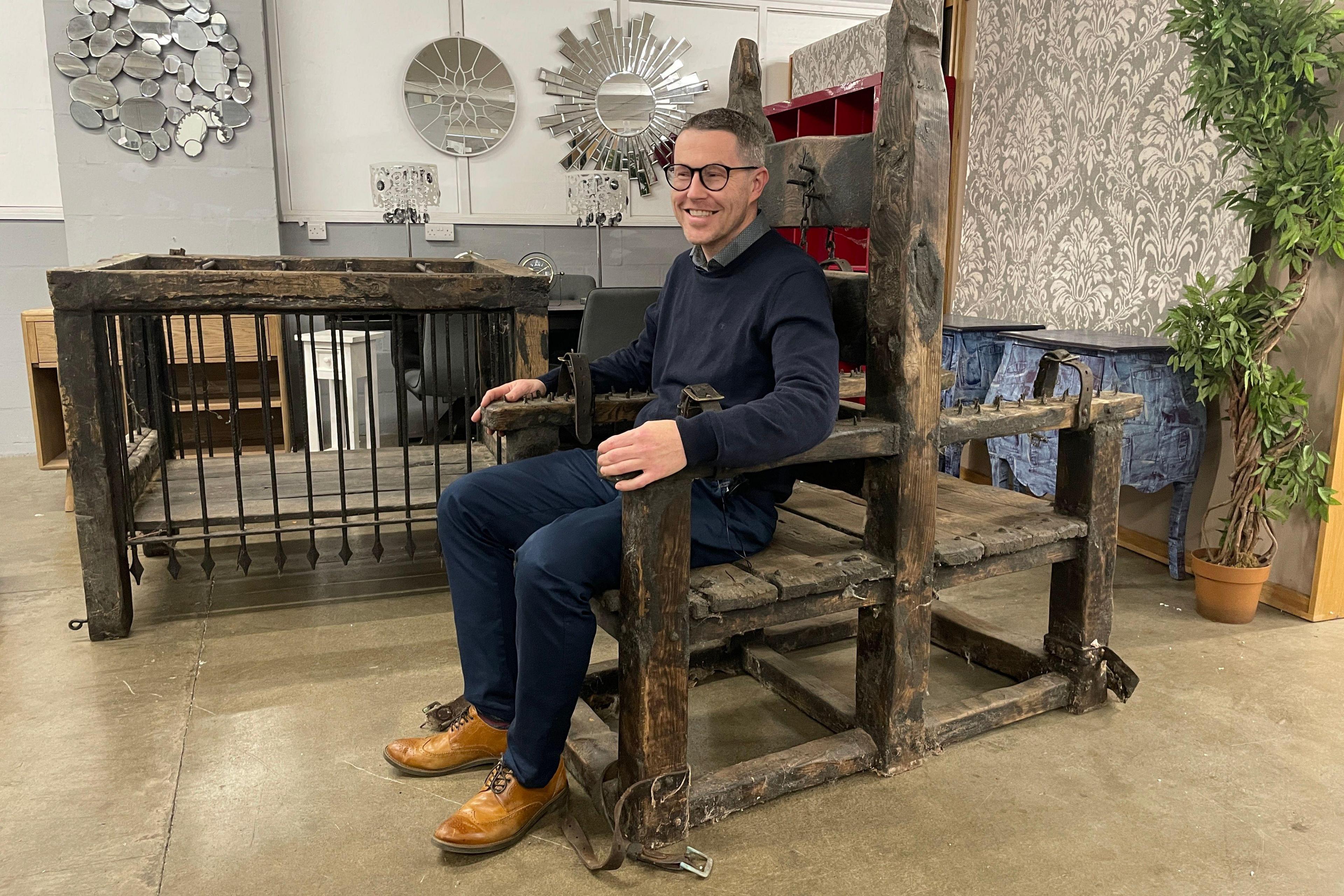
Richard Griza, auctioneer and valuer at Arthur Johnson, said the chair could date from the 16th or 17th Century
"The construction techniques, the way these iron nails are made, they're all hand-forged, so all the techniques, how it's made, the ageing, everything indicates it's 16th or 17th Century, but I will do more research before the catalogue is published," he said.
However, the leather straps appear to be a later addition.
"The fittings are possibly Victorian, maybe slightly later. So all the leather fittings, I don't think they are the same age as the chair," he said.
"In medieval iron chairs, these fittings would have been iron, they would have been hinged, and there would have been screws on them to increase and decrease the pressure on arms as they're pushed down."
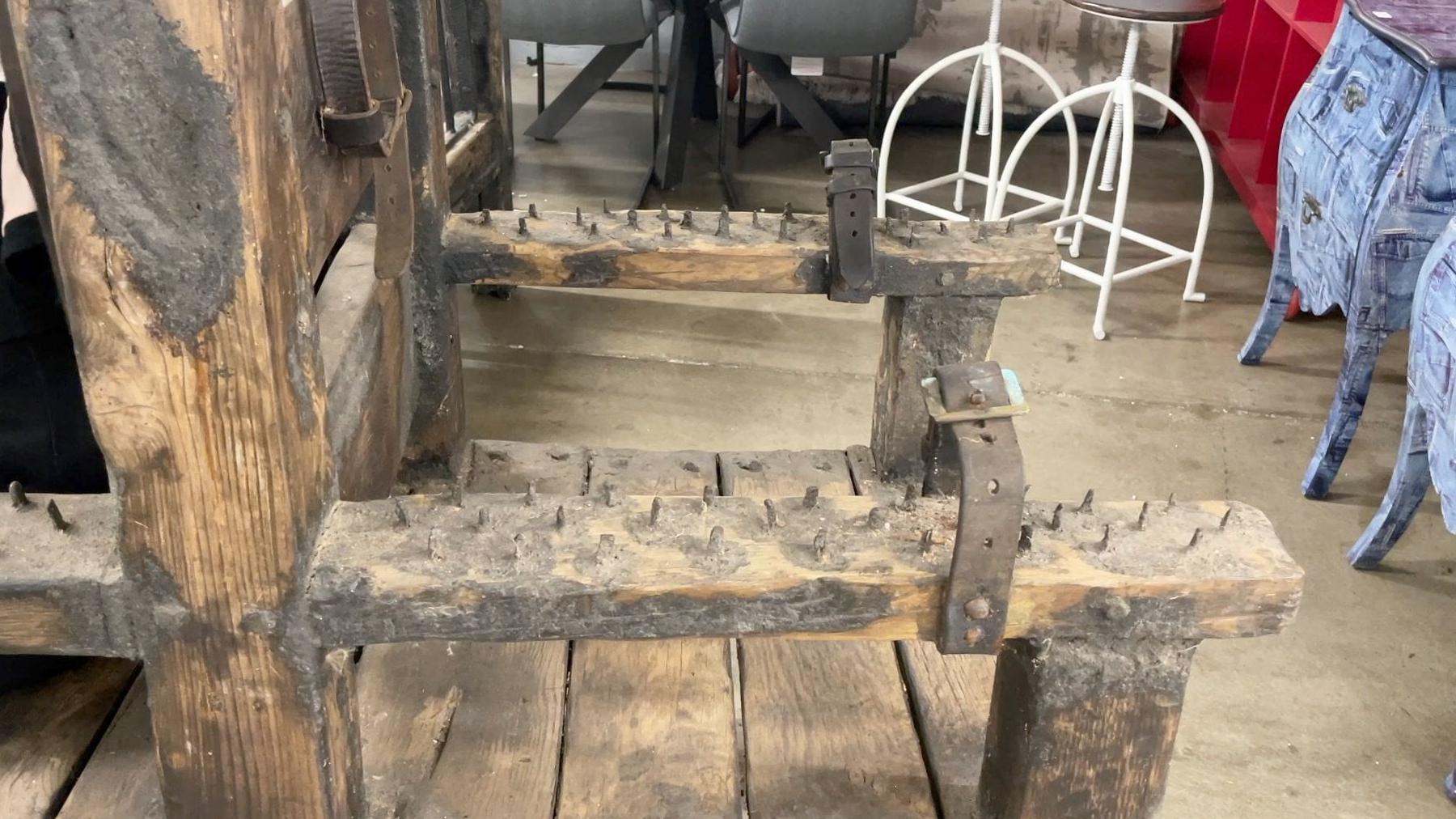
Mr Griza said the iron nails had been hand-forged, indicating the chair was hundreds of years old
Mr Griza said his "gut feeling" was that it was English or Spanish.
"It's made of English elm, so you would think it's made in England, but there are very similar Spanish examples you can find as well, constructed similarly, with elm," he said.
The chair and cage - also made from English elm - are due to be auctioned on 6 December.
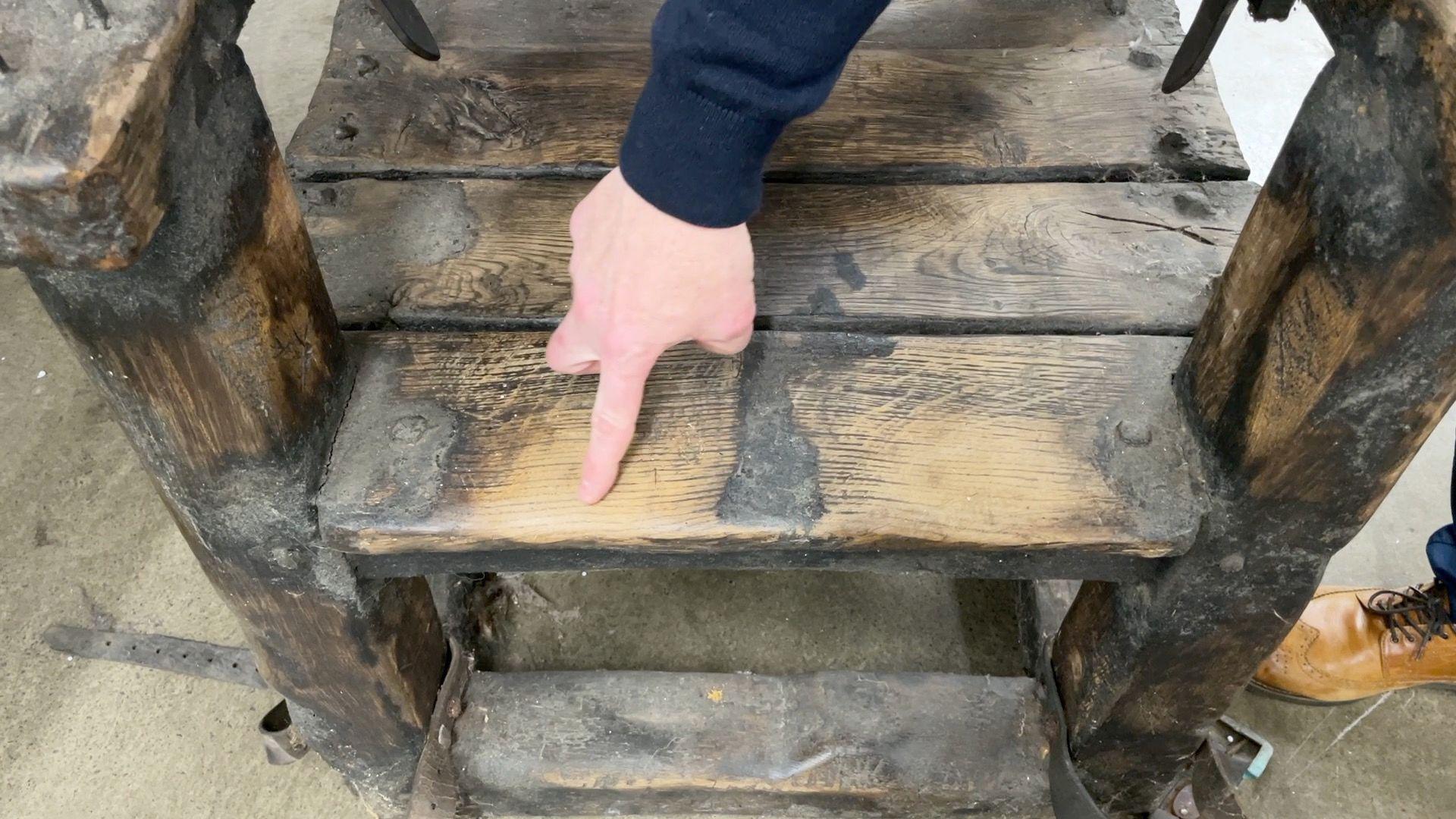
Mr Griza said the chair had "genuine wear from years of use"
"I'm really hoping it will end up in a museum - it would be great to see it in a museum for the public to see," said Mr Griza.
"There's obviously a possibility it could end up in a private collection, possibly the US.
"Obviously American history doesn't go as far as European history, and the American market is quite strong for early pieces.
"And the fact it's got to do with interrogation and torture, I think that will appeal to a certain type of American collector."
Get in touch
Tell us which stories we should cover in Nottingham
Follow BBC Nottingham on Facebook, external, on X, external, or on Instagram, external. Send your story ideas to eastmidsnews@bbc.co.uk, external or via WhatsApp, external on 0808 100 2210.
Related topics
- Published11 March
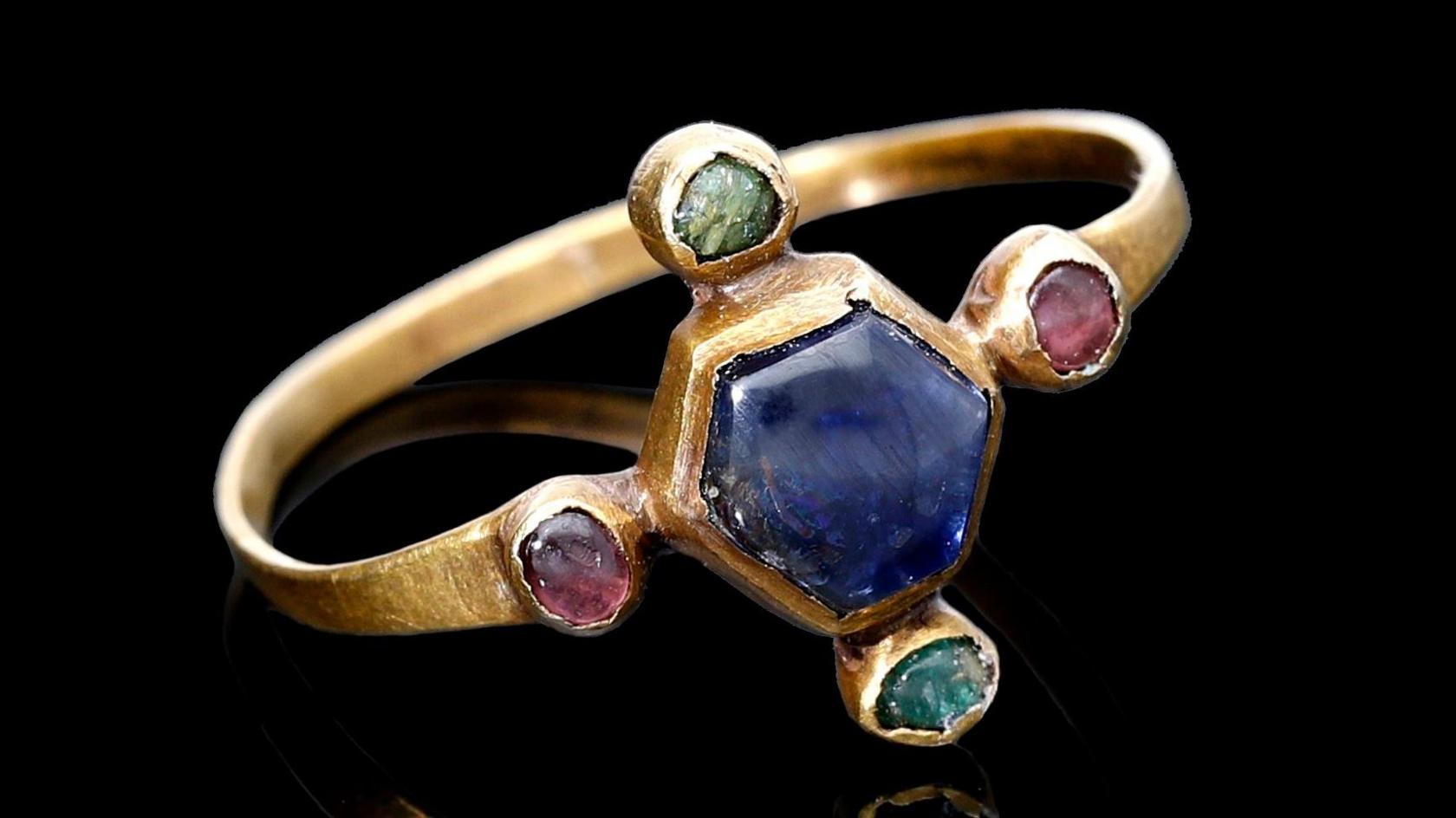
- Published3 November
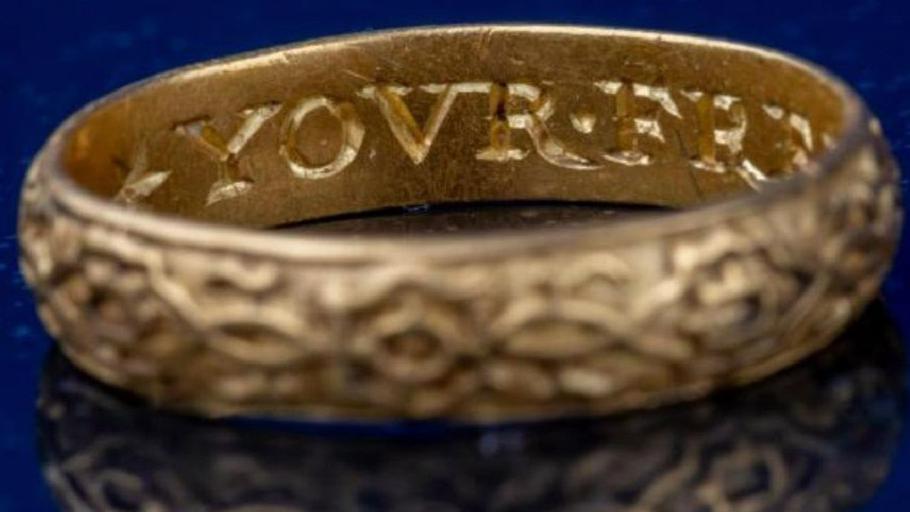
- Published5 March 2022
